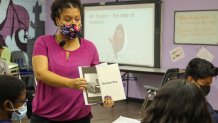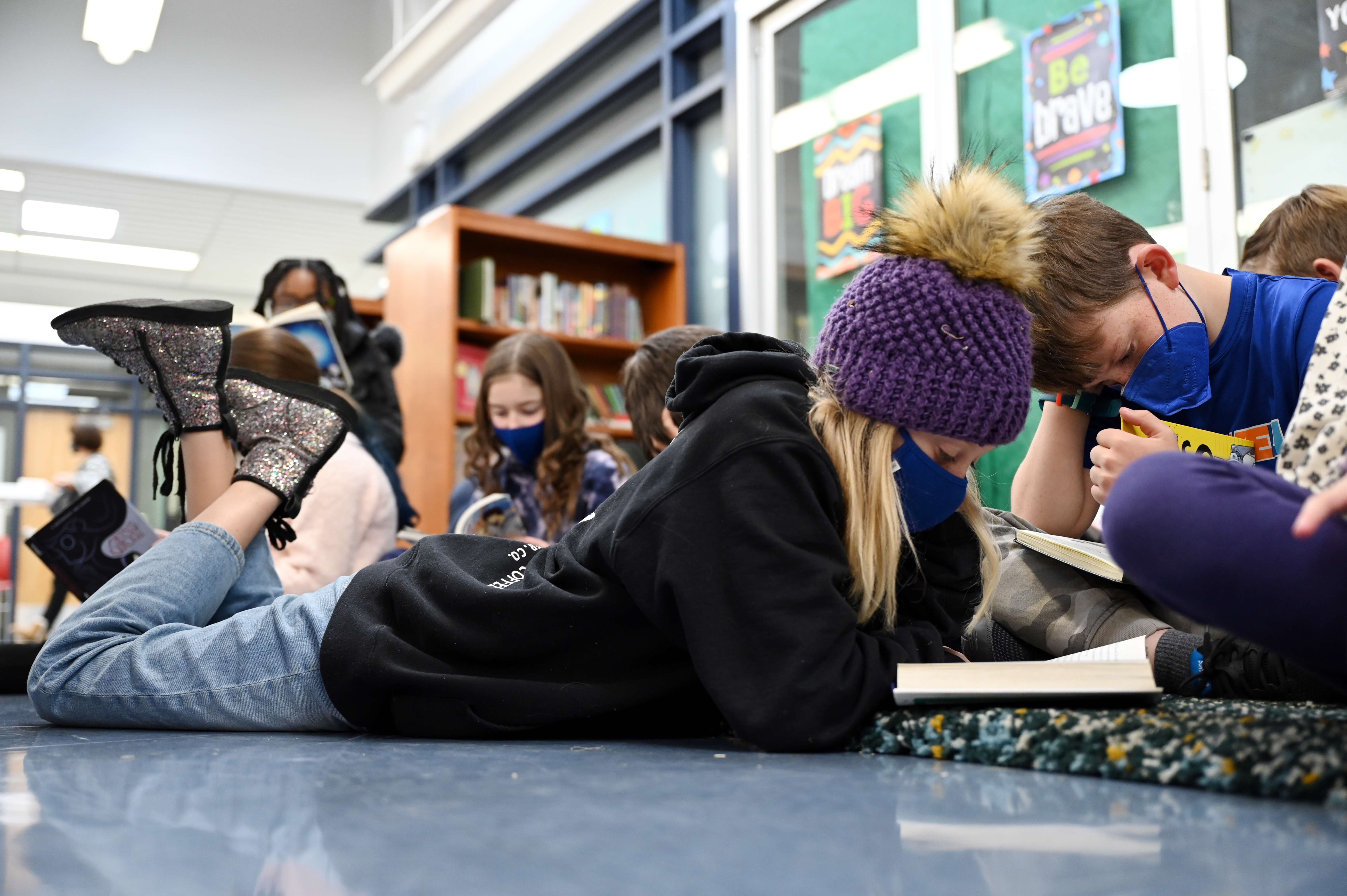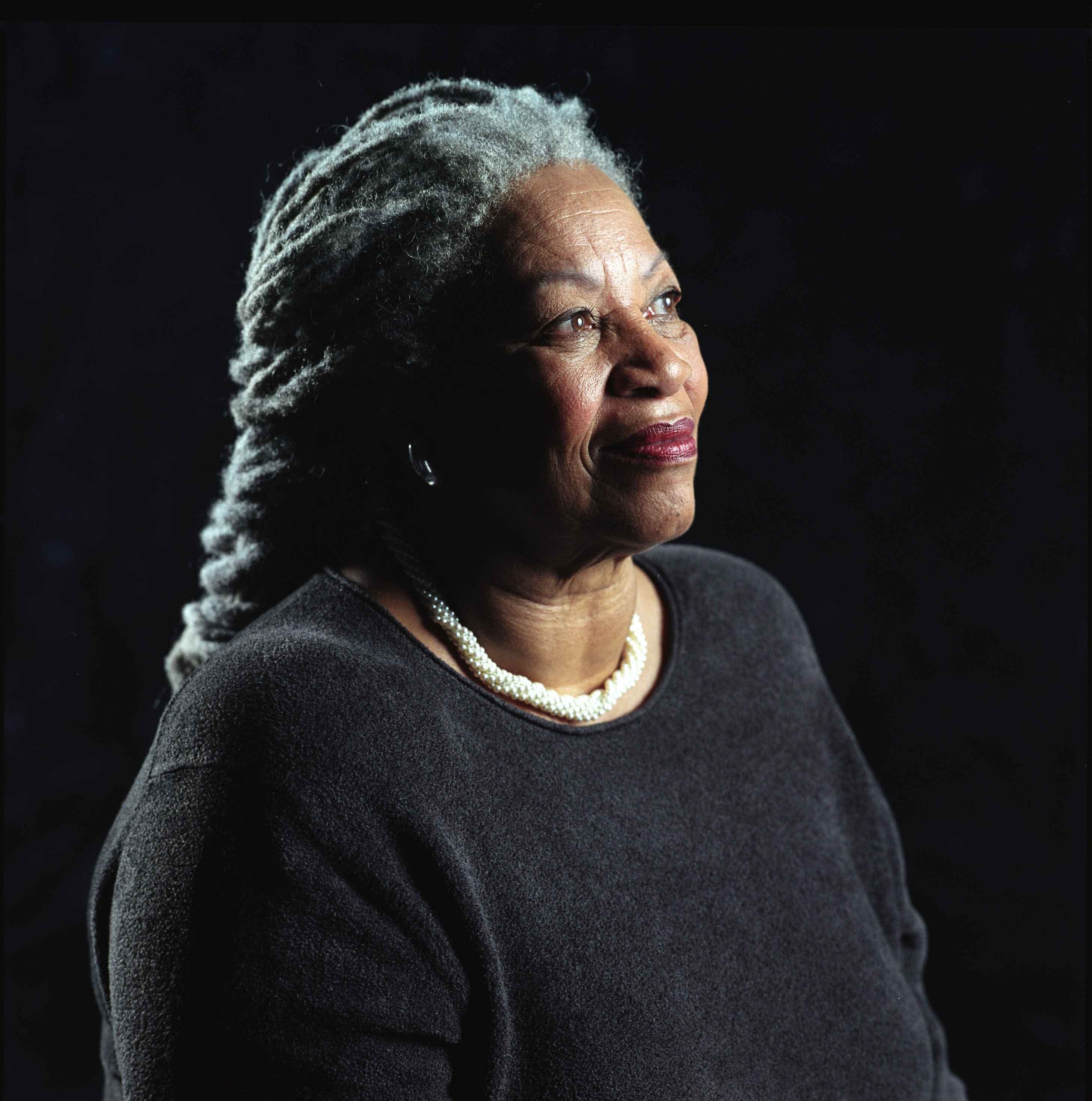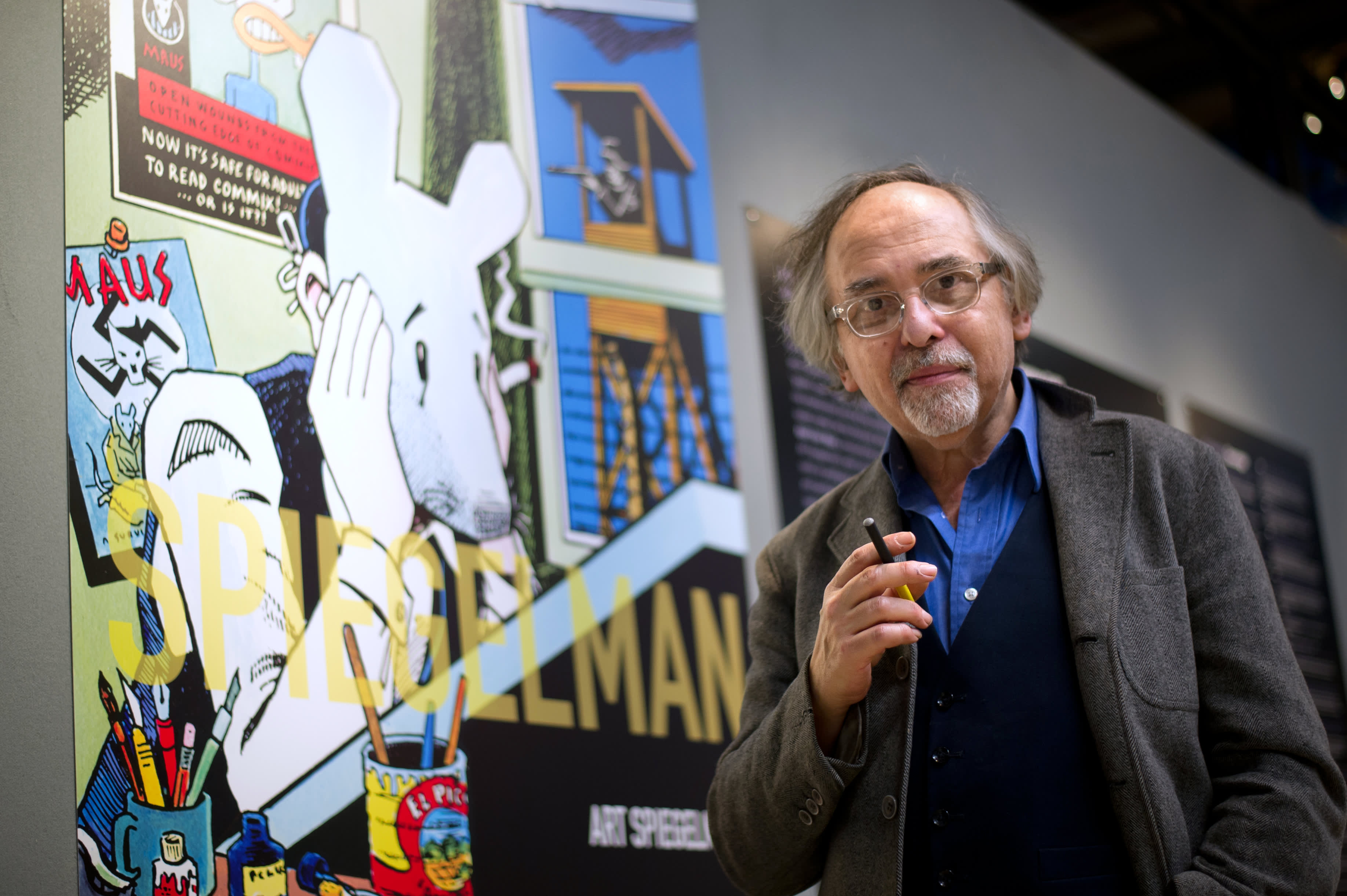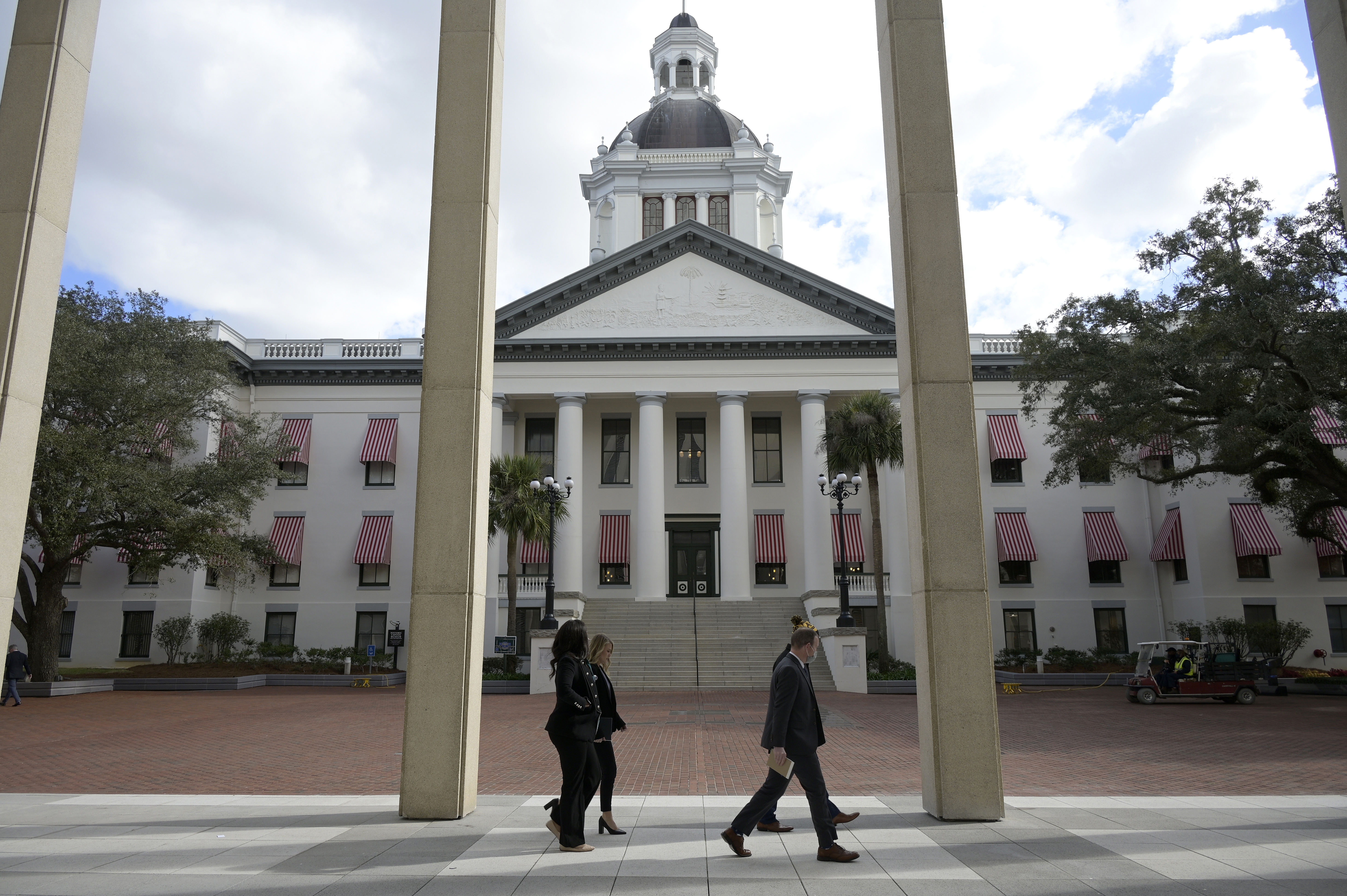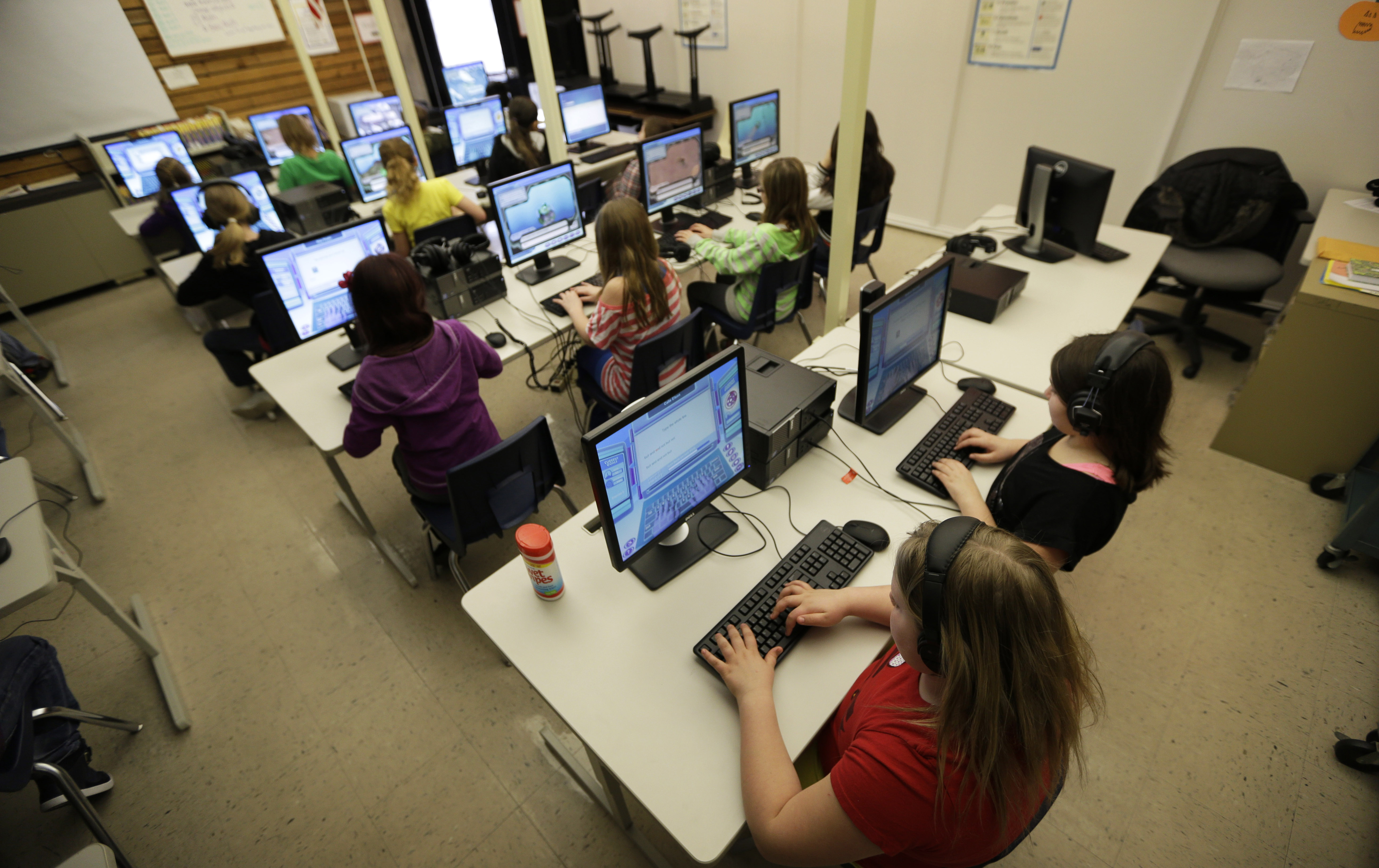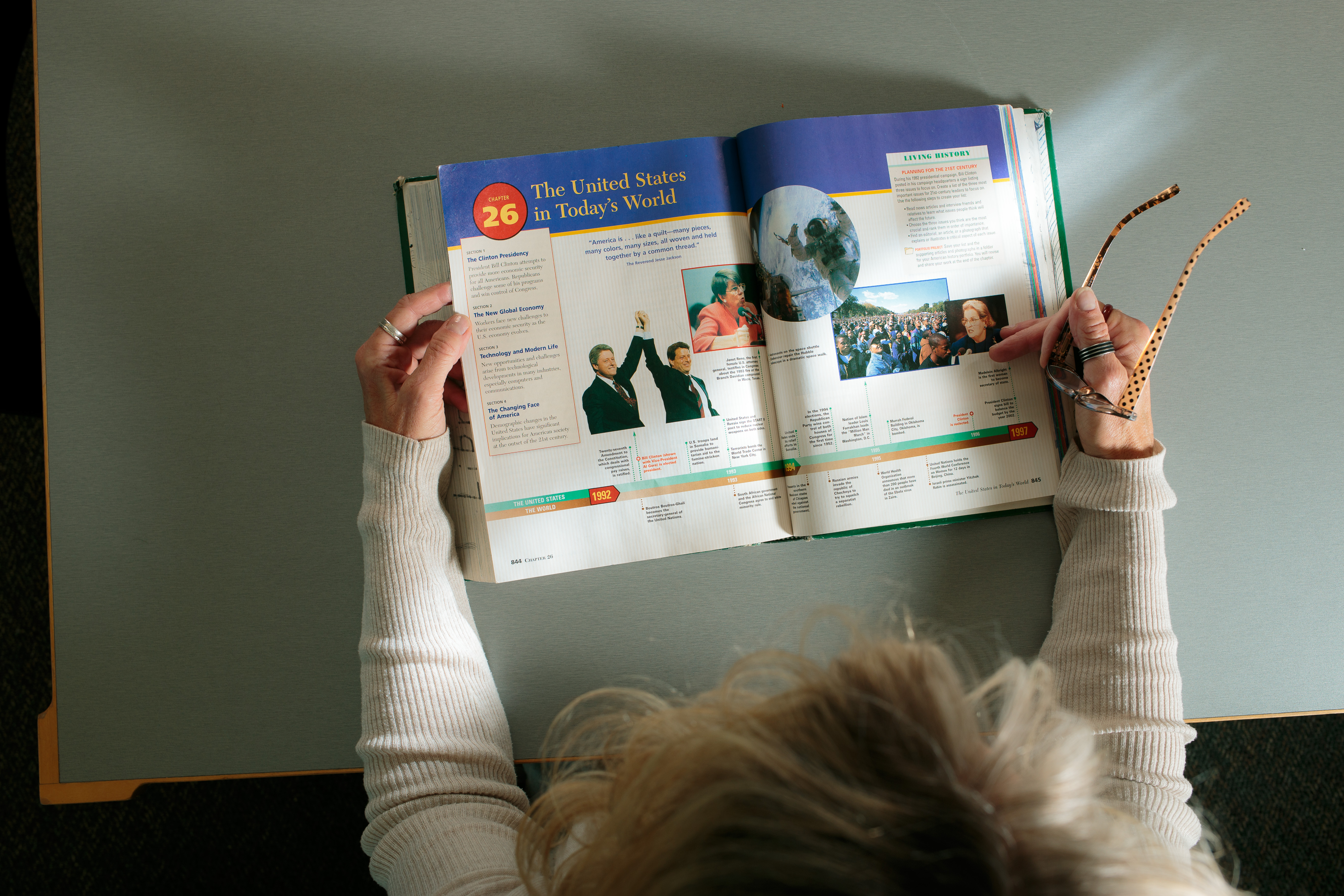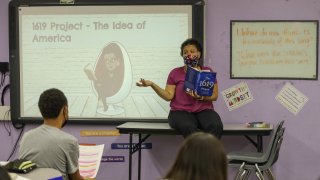
Karimah Tennyson Marsh teaches a class at Century Community Charter School in Inglewood, California.
Middle school teacher Karimah Tennyson Marsh is watching schools try to ban the very books she assigns to her classes at Century Community Charter School in Inglewood, California, where she is chair of the English department.
The authors she favors confront racism, discrimination, and other aspects of society's underside in such books as "The Absolutely True Diary of a Part-Time Indian," Sherman Alexie's story of a young Native American who leaves his reservation for an all-white farm high school, or "Stamped: Racism, Antiracism and You" by Ibram X. Kendi and Jason Reynolds. "The Hate U Give," Angie Davis' debut novel, was inspired by the Black Lives Matter movement. "All American Boys" by Jason Reynolds and Brendan Kiely tells of two classmates, one Black, one white, and one violent encounter with a cop.
Book bannings, attempted book bannings, even threats against librarians have all spiked in the last year, the American Library Association said in its annual State of America’s Libraries Report that it released on April 5. The number of challenges to books in public schools and libraries in 2021 more than doubled from the year before and were the most the association has recorded in the two decades it has been compiling the information. There were 729 challenges to nearly 1,600 books, most of them by or about Black or LGBTQ people.
"The Absolutely True Diary of a Part-Time Indian" and "The Hate U Give" both on the association's list of Top 10 Most Challenged Books for 2021 and all four books were on the list for 2020.
We've got the news you need to know to start your day. Sign up for the First & 4Most morning newsletter — delivered to your inbox daily. >Sign up here.
In school districts around Dallas and other major cities in Texas, for example, parents and conservative politicians are trying to censor books that deal with race, sexuality and gender. Here is a list of 50 books they want banned from school libraries.
Some librarians and others are pushing back. The Nashville Public Library started a Freedom to Read campaign at the end of April and was distributing free “banned books” library cards. Tennessee is among the states engaged in efforts to ban books.
In New York, the Brooklyn Public Library started the Books UnBanned initiative. It is allowing anyone ages 13 to 21 to apply for a free library eCard, which provides access to the library's full eBook collection, 350,000 ebooks and 200,000 audiobooks, and databases. In response, some conservative parents want schools and libraries to shut down apps that allow children to read books on their smartphones, tablets and laptops.
The Brooklyn Public Library, one of the largest in the country, also is making some frequently challenged books available with no waits, among them "The 1619 Project" by Nikole Hannah-Jones.
NBC talked to Marsh about why she believes it is important to expose her students to the themes these book explore. The conversation has been edited for length and clarity.
When did you start teaching banned books? What gave you the idea?
I did not intend to at all. No, it was just books that I enjoyed reading and books that I think the kids would enjoy reading, because the kids will know if I’m not into a book.
I don’t think I actually set out — it’s just that when I decided I wanted to be a teacher I had read "The Autobiography of an Ex-Colored Man" and I was like, I want to teach this. The books I choose come from a desire of hearing the voices I did not hear growing up in school.
So knowing the canon, the Western canon, I wanted to disrupt it and so I chose books by Black authors, Muslim authors, Latinix authors, Asian authors.
Our school is 90% Latinix, 10% Black, so they know what’s it’s like to have a Latin story, a Latinix story, a Black story.
But do they know what it’s like to be Arab? Do they know what it’s like to be a Vietnamese immigrant because we read "Inside Out and Back Again" a few years ago.
I also read ("The Absolutely True Diary of a Part-Time Indian".) My seventh-graders fell crazy over that and that’s banned. So I’m not like, ‘Oh I’m going to take this banned book’ but it’s books I think would be interesting to the kids. One noted exception is "Stamped." Before it even had a chance to get in the classrooms it was banned. Well, I was like, I’m going to teach it. And the kids love when I say ‘This is a banned book’ ‘What? Why would they ban it?’ I’m honest with them. ‘And you’re teaching it and you don’t care?’ ‘Nope, we’re going to read it.’ ‘Cool.’
Schools Ban Books
What books are you teaching now?
I had read "All American Boys" with my students when it first came out. I was lucky to get the (advance review copy) and I was reading it and I’ll never forget this: I read the first chapter, I was on the train going somewhere and I just started bawling. I was like, my kids are going to love this so when it came out officially, we read that. I did that for two years, and then as much as I love "All American Boys" and love teaching it, I do like to change up my books to keep current but also to keep me relevant in terms of teaching and "The Hate U Give" came out in that time.
Our whole school went crazy. Kids were reading in the hallways, teachers were borrowing books from the kids. I usually do a set order and I had to reorder twice. Parents were taking books from the kids, reading it. I was just like, ‘OK people stop. I’m trying to teach.’ Kids wouldn’t have their books in class because 'oh, so and so teacher has it.'
At that same time that was also Parkland. [Seventeen were killed when a gunman opened fire at Marjory Stoneman Douglas High School in Parkland, Florida, in 2018.] It inspired my kids to become activists and so they participated in the walkout. And then a couple of kids, we went to the March for Our Lives. And they came to me, they said they wanted to do this, and I did not influence them.
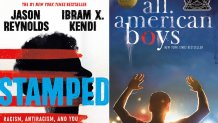
The whole movement, March for Our Lives, was not just about school violence but it was about gun violence period. And living in Inglewood, and some of my kids in Watts, and some of my kids live in South Central, they have seen gun violence, they have experienced gun violence. And so again that also resonated with them in terms of the book but also they see police brutality because of where they live so it gave them a chance to voice what they’re feeling. So they really connected with the book. It was one of the most exciting times I’ve taught because the kids were so engaged in the discussions in my classroom and the activities. It was absolutely amazing. I think at that point I didn’t know it as banned. i just knew it was an amazing book and the kids would get so much out of it.
When I taught it the second time at that point I knew it was banned… the following school year, which was ironically enough the same year that COVID happened, so that time was a little different because the kids had already known about the book.
But we also went and saw the movie to connect it. The kids loved the movie. Kids came out crying. Some kids came out mad, ‘How could they do this?’ That group didn’t get as interested in activism, but they’re different kids, they have different priorities. But they were still involved in the book. They really loved the book.
Kids are innocent but they’re not naive. They see the world around them, especially this current generation because they are on their phones, they know what’s going on. Google is so easy for them, TikTok, all that good stuff, so they know what’s going on and to say they’re too innocent to know this. …no, no, they want to talk about it.
And 'Stamped'?
Most of my students are Hispanic, Latino, a very huge Mexican population but I do have students from Guatemala and El Salvador. When I was reading "Stamped" I included information about what happened in South America, and the slave trade was there as well, what happened to the indigenous people, the Mayan, the Aztec, the injustices that Mexican Americans and Hispanic Americans have received as a result of racism as well. And so they need to know their history too.
California also has a history of lynchings. primarily Hispanic people but there was also a Basquer, Chinese, where they just went and lynched a bunch of people in a couple of days.
We’re taught the good part of California history. We have do a mission project, we’re taught the missions are good. but we’re not taught that the native Americans were actually slaves.
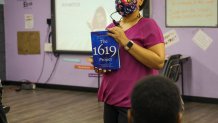
Why is it important to teach these books?
I want my kids to know they have a voice. Because a number of kids think, ‘I’m just in the eighth grade, what can I do? Because obviously, ‘We’re like vote, vote, vote, vote, vote’ but you have to be 18 to vote and so a lot of times they do feel helpless.
I want them to understand that ‘You know, yes, you can’t vote, but there are there things you can do. You can influence your parents or other family members for them to go out and vote, for them to go out and change.’
The year COVID happened we had just finished a unit where they had to come up with an organization or a product that would give back to the Earth in some way. And the things that the kids came up with were amazing, creative, and I was like, ‘Now these things you guys can actually do.’ So they just have to think about that and learn how they can bring about change and know that they do have a voice.
Schools and culture wars
Many of my students are children of undocumented parents, and they’re a little hesitant, rightfully so… and so it’s, ‘Here’s how you can do that.’
We’re leaving the world to them. That is their future. and so they should have the ability to take ownership of their future and it doesn’t mean they take ownership of it when they’re 45, it’s taking ownership of it when they’re 13, 14 years old. That’s my goal.
I want them to be able to use their voices. And so by teaching them, one, banned books, because I’m letting them know that there are people who try to stifle these voices, that you can fight back. And I tell them, the way I fight back is teaching this to you because people don’t want you to have this information. People don’t want you to know. but I want you to know. It makes you more powerful.
Tell me about your school
It was actually started out of Century Housing, which developed from the (Interstate) 105 freeway construction. There were homes there. Century Housing was developed to help the displaced people.
When the charter movement was really starting to get going, they thought about doing an elementary school, they thought about doing a high school, but studies show that middle school is really crucial.
In the sixth grade they’re just the cutest little things, running the classes. Eighth-graders, they saunter, so they take that whole five minutes in between classes. There really is so much growth in those three years.
Our mission is not just to educate them but also educate the whole child. We want to create the future thinkers, the future entrepreneurs, the future leaders, and we do.
